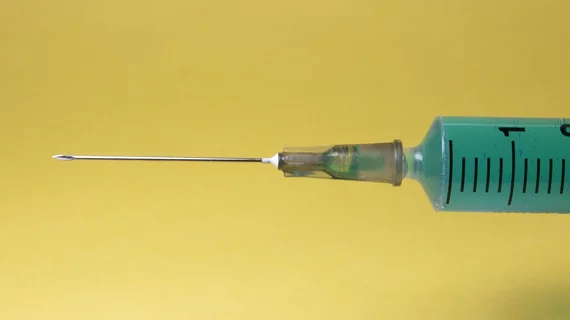CVS stops administering J&J vaccine at pharmacies
CVS Health has stopped offering the Johnson & Johnson COVID-19 vaccine at its pharmacies, though it still will provide the single-dose vaccine at some MinuteClinic retail locations, according to CNBC.
The shot will only be available at roughly 10% of CVS locations. That’s about 1,000 locations in 25 states and Washington D.C. CVS will continue offering vaccines from Pfizer-BioNTech and Moderna, which are more effective that the J&J vaccine and given through two doses.
The change comes as the J&J vaccine has received some pushback and faced challenges since it was given emergency authorization use by the Federal Drug Administration. Distribution of the vaccine was temporarily paused by the CDC in April over fears the shot was linked to rare blood clotting disorders. However, the CDC quickly reversed the pause.
"We remain committed to helping end this deadly pandemic as quickly as possible,” J&J told CNBC. “A single-shot vaccine that provides protection and prevents hospitalization and death is an important tool in the global fight against COVID-19. Evidence from our Phase 3 ENSEMBLE study demonstrates the efficacy of the J&J single-shot COVID-19 vaccine, including against viral variants that are highly prevalent. Regardless of race and ethnicity, age, geographic location and comorbidities, these results remain consistent."
CVS stated it has made the change over the last several weeks.
See the full story below:

